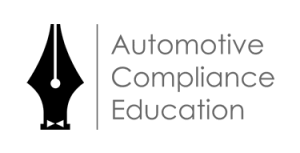Mastering Automotive Compliance Training: Ensuring Safety, Quality, and Legal Adherence

The Importance of Automotive Compliance Training
Compliance training in the automotive industry is crucial for ensuring that businesses operate within the boundaries of laws and regulations. From safety standards to environmental requirements, there are numerous areas where compliance is essential to maintain a reputable and legally sound operation.
Ensuring Safety and Quality
One of the primary goals of compliance training in the automotive sector is to ensure the safety and quality of products and services. By educating employees on safety protocols, quality control measures, and industry standards, businesses can reduce the risk of accidents, defects, and non-compliance issues that could harm both consumers and the company’s reputation.
Meeting Regulatory Requirements
The automotive industry is subject to a myriad of regulations at the local, state, national, and even international levels. Compliance training helps employees understand these regulations and how they apply to their specific roles within the organization. By staying informed and up-to-date on regulatory requirements, businesses can avoid costly fines, penalties, or legal actions resulting from non-compliance.
Promoting Ethical Practices
Compliance training also plays a key role in promoting ethical practices within the automotive industry. Employees learn about ethical considerations related to interactions with customers, suppliers, competitors, and other stakeholders. By instilling a culture of integrity and transparency through training programs, businesses can build trust with their partners and customers.
Reducing Risk Exposure
Non-compliance with laws and regulations poses significant risks to automotive businesses. These risks include financial losses, damage to reputation, legal liabilities, and even potential shutdowns. Compliance training helps mitigate these risks by equipping employees with the knowledge and skills needed to identify compliance issues early on and take appropriate actions to address them.
Conclusion
In today’s complex regulatory environment, automotive compliance training is not just a best practice—it’s a necessity for sustainable business success. By investing in comprehensive training programs that cover safety protocols, regulatory requirements, ethical practices, and risk management strategies, automotive companies can protect their interests while fostering a culture of compliance throughout their organizations.
Remember: Compliance is not just about following rules—it’s about building trust with customers, safeguarding your business reputation, and ensuring long-term viability in an ever-evolving industry.
Six Essential Strategies for Effective Automotive Compliance Training Programs
- Ensure all employees receive proper training on automotive regulations and compliance standards.
- Regularly update training materials to reflect any changes in laws or industry standards.
- Provide hands-on training opportunities to reinforce theoretical knowledge with practical experience.
- Encourage open communication channels for employees to ask questions and seek clarification on compliance issues.
- Monitor and track employee progress in their compliance training to ensure completion and understanding of the material.
- Conduct periodic audits or assessments to evaluate the effectiveness of the automotive compliance training program.
Ensure all employees receive proper training on automotive regulations and compliance standards.
To uphold a culture of compliance and mitigate risks in the automotive industry, it is essential to ensure that all employees undergo thorough training on automotive regulations and compliance standards. By equipping every team member with the necessary knowledge and understanding of legal requirements, safety protocols, and ethical practices, businesses can proactively address potential compliance issues and uphold industry standards. This investment in comprehensive training not only fosters a sense of responsibility among employees but also helps safeguard the company’s reputation and long-term success within a highly regulated sector.
Regularly update training materials to reflect any changes in laws or industry standards.
It is essential for automotive businesses to regularly update their training materials to align with any changes in laws or industry standards. By staying current with regulatory requirements and best practices, employees can receive accurate and relevant information that enables them to uphold compliance effectively. Updating training materials ensures that employees are equipped with the most up-to-date knowledge, reducing the risk of non-compliance issues and promoting a culture of continuous learning and improvement within the organization.
Provide hands-on training opportunities to reinforce theoretical knowledge with practical experience.
To enhance the effectiveness of automotive compliance training, it is essential to provide hands-on training opportunities that allow employees to apply theoretical knowledge in practical scenarios. By engaging in real-world exercises and simulations, participants can reinforce their understanding of compliance protocols, safety procedures, and regulatory requirements. This hands-on approach not only deepens learning but also helps employees develop the skills and confidence needed to navigate complex compliance challenges effectively in their day-to-day roles within the automotive industry.
Encourage open communication channels for employees to ask questions and seek clarification on compliance issues.
Encouraging open communication channels for employees to ask questions and seek clarification on compliance issues is a key aspect of effective automotive compliance training. By fostering a culture where employees feel comfortable raising concerns and seeking guidance, businesses can proactively address potential compliance risks and ensure that everyone is on the same page when it comes to following regulations. Open communication not only promotes transparency and accountability but also empowers employees to make informed decisions that uphold the company’s commitment to compliance and ethical practices in the automotive industry.
Monitor and track employee progress in their compliance training to ensure completion and understanding of the material.
Monitoring and tracking employee progress in automotive compliance training is essential to guarantee the thorough completion and comprehension of the material. By keeping a close eye on each employee’s advancement through the training program, businesses can identify any areas of struggle or potential gaps in understanding early on. This proactive approach allows for timely intervention, additional support, or clarification to ensure that all employees not only complete the training but also grasp the critical concepts necessary to maintain compliance within the automotive industry.
Conduct periodic audits or assessments to evaluate the effectiveness of the automotive compliance training program.
To ensure the efficacy of an automotive compliance training program, it is essential to conduct periodic audits or assessments. By regularly evaluating the training program, businesses can identify areas of strength and areas needing improvement. These audits provide valuable insights into the effectiveness of the training content, delivery methods, and overall impact on employee compliance knowledge and behavior. Through continuous assessment and adjustment, companies can enhance their training programs to better meet regulatory requirements and mitigate compliance risks in the ever-evolving automotive industry landscape.


